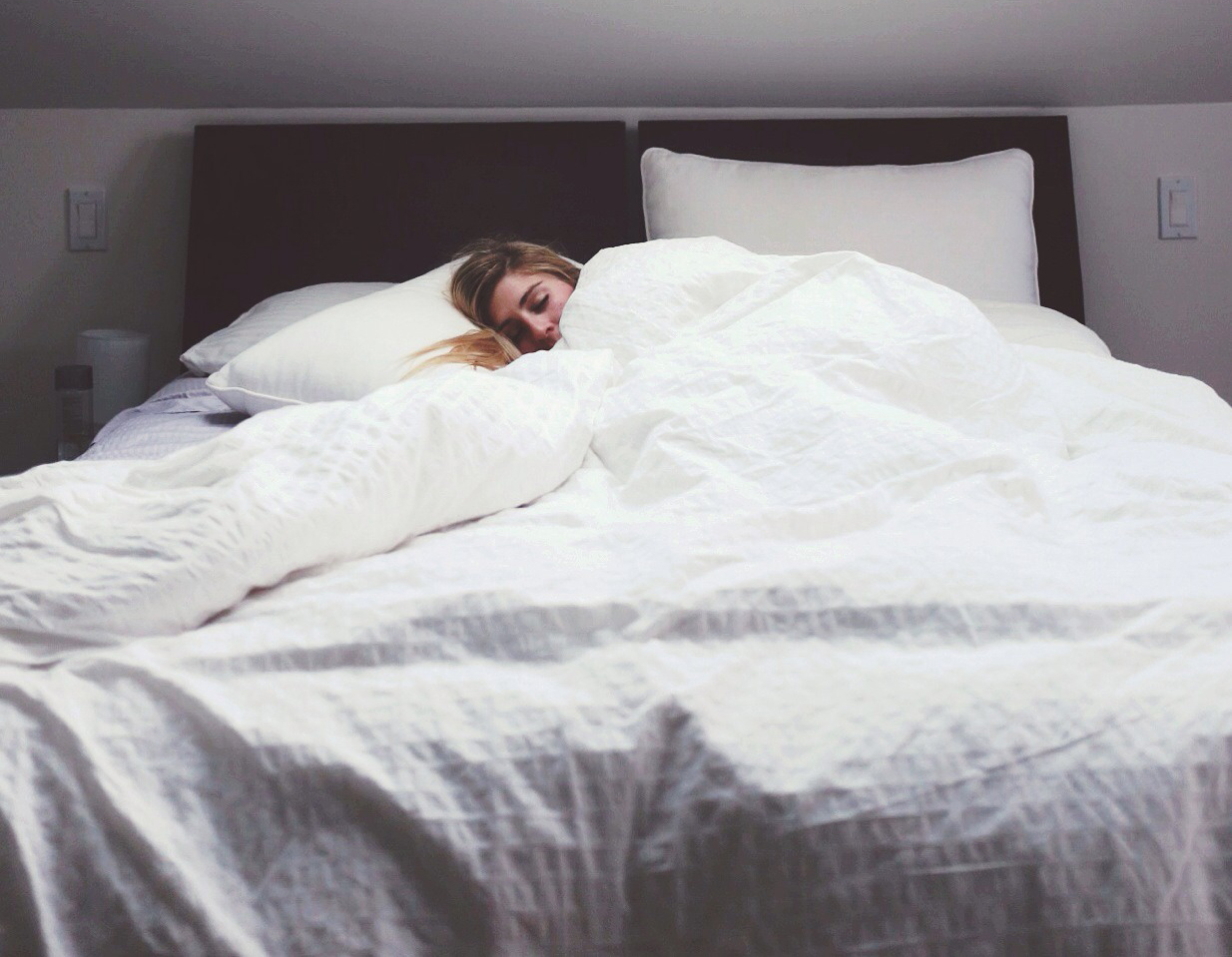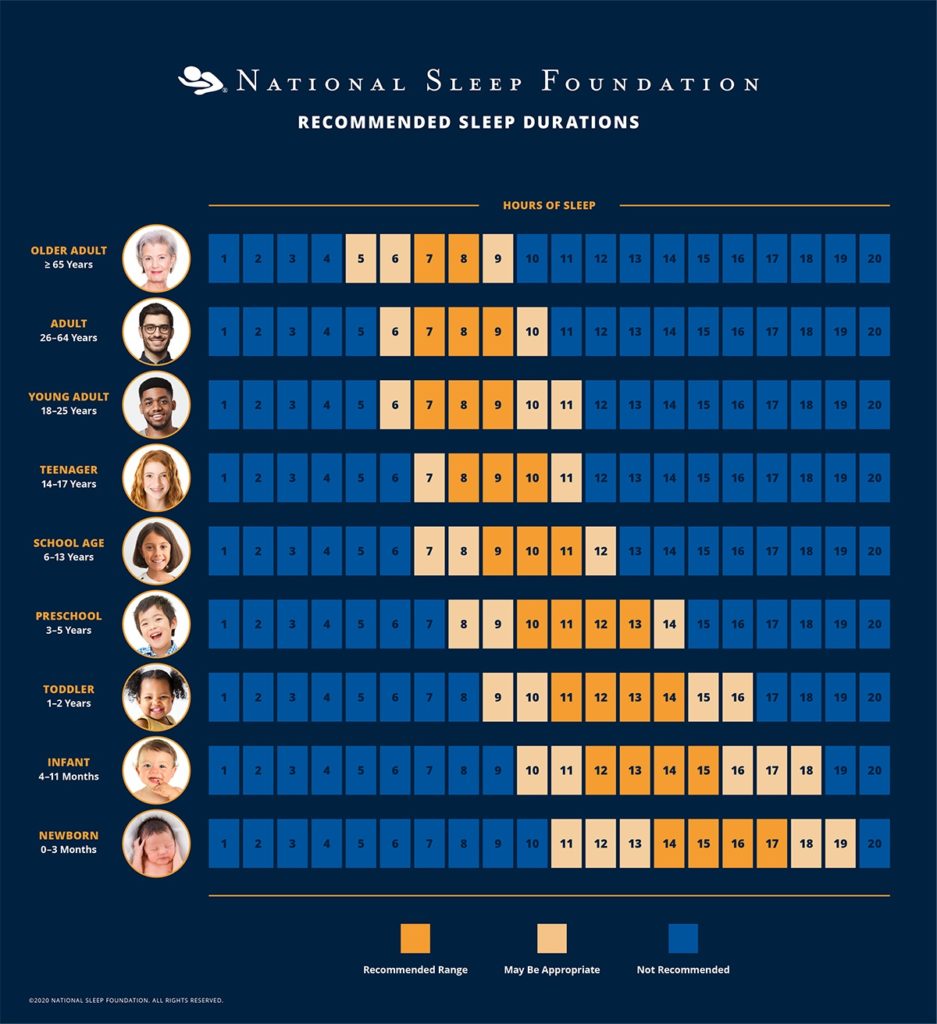

Getting enough sleep is doable and important for your health. Read on for how many hours to strive for at every age.
Sleep is essential to feeling rested and alert. Getting the right amount for your mind and body feels great and helps you wake up feeling refreshed and ready to go. Every person is different when it comes to the exact amount of sleep that’s optimal for them, but most people fall within a range, depending on their age. These guidelines can help you determine how much sleep you really need, while providing some easy ways to achieve it.

There is no precise number of minutes or hours of sleep at night that guarantees you will wake up feeling totally refreshed. But based on your age and lifestyle, what’s recommended for you likely falls within a certain range. To help yourself stay alert during the day, try sticking with these guidelines.
Newborns: From 0-3 months, babies need between 14 and 17 hours of sleep. This includes daytime naps, since newborns rarely sleep through the night. Older infants (4-11 months) need about 12 to 15 hours of sleep each day.
Toddlers: Between the first and second year of life, toddlers need between 11 and 14 hours of sleep each night.
Children: Preschoolers (3-5 years) should get 10 to 13 hours, while school-age kids (6-13 years) should strive for nine to 11 hours each night.
Teenagers: As kids get older, their need for sleep decreases slightly. Teens (14-17 years) require about eight to 10 hours of nightly sleep.
Adults: Between the ages of 18 and 64, adults should aim for seven to nine hours of nightly sleep. If you’re older than 65, you may need a little less: seven to eight hours is recommended.
Some people can function well on the lower end of the range and others will need every minute of the upper limit. In fact, an additional hour or two on either side of a given range may be appropriate, depending on the person. Still, straying too far from the recommended amount could lead to a variety of health issues. For example, shortchanging sleep has been associated with weight gain, reduced immunity, high blood pressure, and depression.
The negative effects of too little or too much sleep aren’t just physical—they can also interfere with your mental health. Your outlook, mood, and attention span all depend on getting the right amount of sleep, and without it, your job performance (not to mention your personal life) can suffer.
If getting enough sleep seems like an uphill battle, there are a few tips you can try. To start, head to bed at the same time every night, to allow your body to settle into a regular sleep-wake schedule. Just the way kids benefit from a set schedule, adults who stick to a regular pre-sleep routine that includes reading, meditation, journaling, and a warm bath may find it easier to wind down in the evening.
To help get quality sleep, avoid alcohol, caffeine, and spicy and fried foods right before bedtime. Aim for a bedroom temperature between 60 and 67 °F , make sure it’s dark, and block any bothersome noises with a pair of earplugs. For a fuller list of sleep tips, read them here .